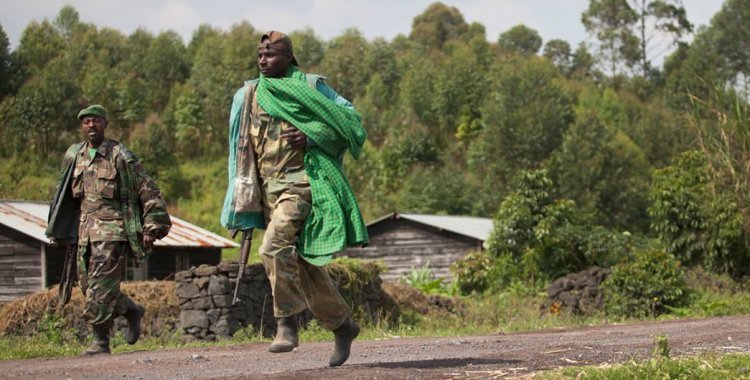The incident took place in the territory of Nyirangongo, near the city of Goma, capital of the province of North Kivu, which was captured by the rebels of the March 23 Movement (M23) in January.
The reports came just hours after the presidents of the Democratic Republic of Congo (DRC) and Rwanda met in Doha, in an initiative of mediation by the Emir of Qatar, Tamim bin Hamad Al-Thani.
The two presidents, Félix Tshisekedi (DRC) and Paul Kagame (Rwanda), discussed the conflict in eastern DRC that pits government forces against the rebels of the M23, supported by Rwanda.
At the end of the meeting, in a joint statement, the three heads of state reaffirmed the commitment of all parties to an "immediate and unconditional" ceasefire, and the Democratic Congolese and Rwandan leaders agreed on the need to continue the talks initiated in Doha, "in order to establish solid foundations for lasting peace".
Regarding the incident on Tuesday night, Julien Kinyambisa, a civil society leader in Nyirangongo, told the EFE news agency that the victims "were young people" and that he did not know the reasons why they were killed.
Diplomatic efforts to find a compromise for peace have been fruitless.
Tshisekedi and Kagame were due to meet at a peace summit called for 15 December in the Angolan capital, after a ceasefire agreement signed in Luanda on 30 July and which came into effect on 4 August was interrupted by new fighting. The meeting ended up not taking place due to Kagame's absence.
The meeting between the two leaders in Doha took place on the same day that a direct peace dialogue was scheduled to begin between delegations from the DR Congo and the rebels in Angola, a country that is also acting as a mediator in the conflict.
The meeting in Angola did not take place after the M23 cancelled its participation following the imposition of sanctions against some of its leaders by the European Union (EU).
In a statement released late in the afternoon in Luanda, the Ministry of Foreign Affairs announced that the meeting between delegations from the DR Congo and the M23 had been postponed to an "opportune moment" due to "force majeure circumstances".
The Angolan government, which is playing the role of mediator in the search for a solution to the ongoing conflict in eastern DR Congo, has assured that it will "continue to make every effort to ensure that the aforementioned meeting takes place at an opportune time, reaffirming that dialogue is the only lasting solution for peace" in that region of neighbouring DR Congo.
The Luanda meeting would mark the beginning of direct negotiations for peace and was part of the "steps taken by Angolan mediation in the conflict affecting eastern DR Congo", according to the Presidency.
The M23 has been advancing in democratic Congolese territory since January, when it took Goma, the capital of North Kivu province.
In February, the M23, which is supported by Rwanda – according to the UN and countries such as the US, Germany and France – seized Bukavu, the strategic capital of the neighbouring province of South Kivu.
The rebels now control the capitals of these two provinces, which border Rwanda and are rich in minerals such as gold and coltan, essential for the technology industry and the manufacture of mobile phones.







